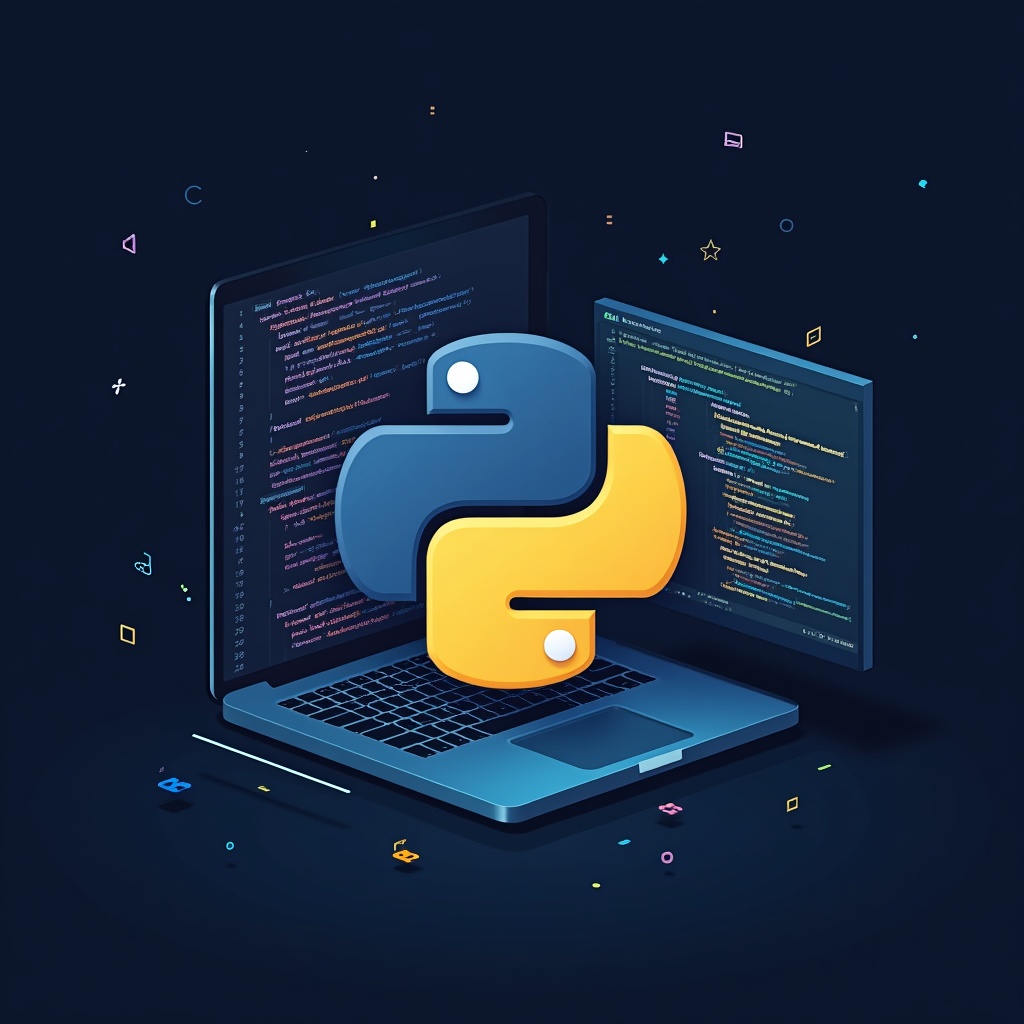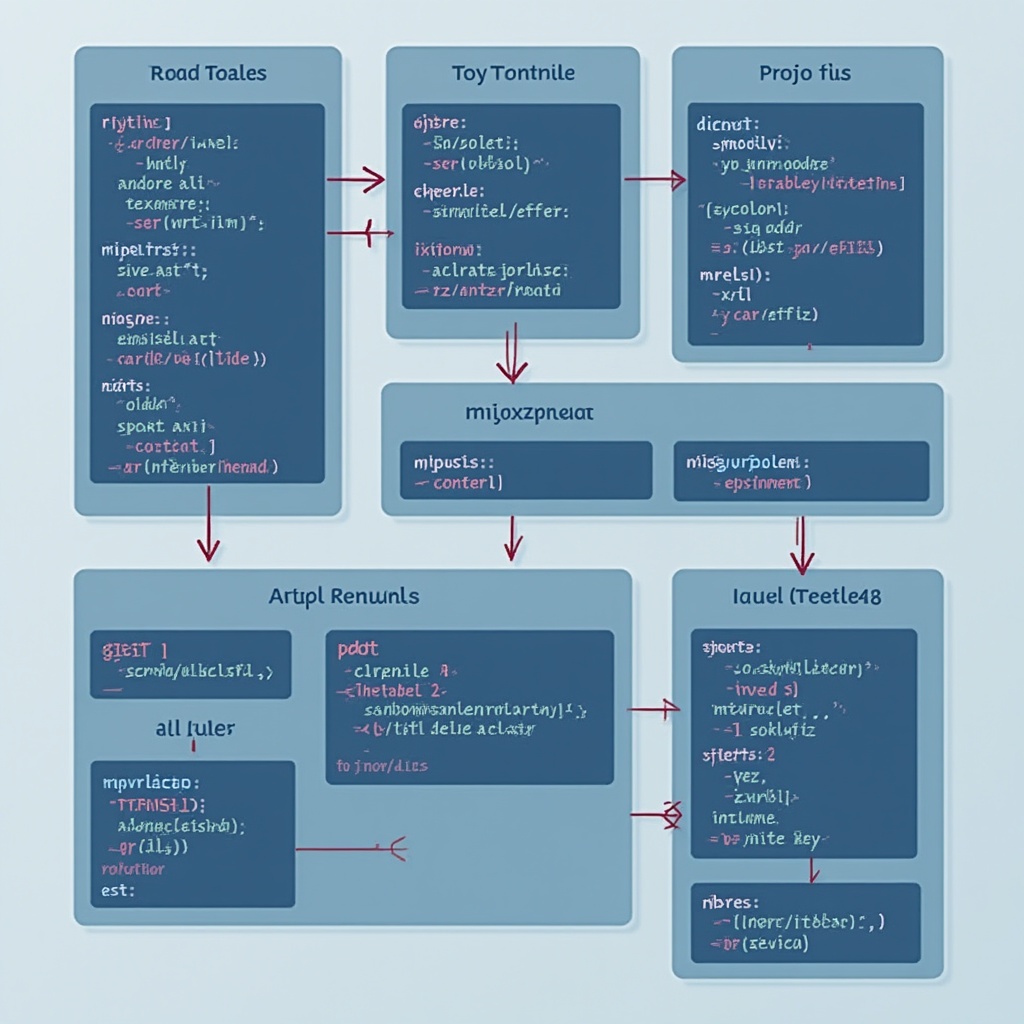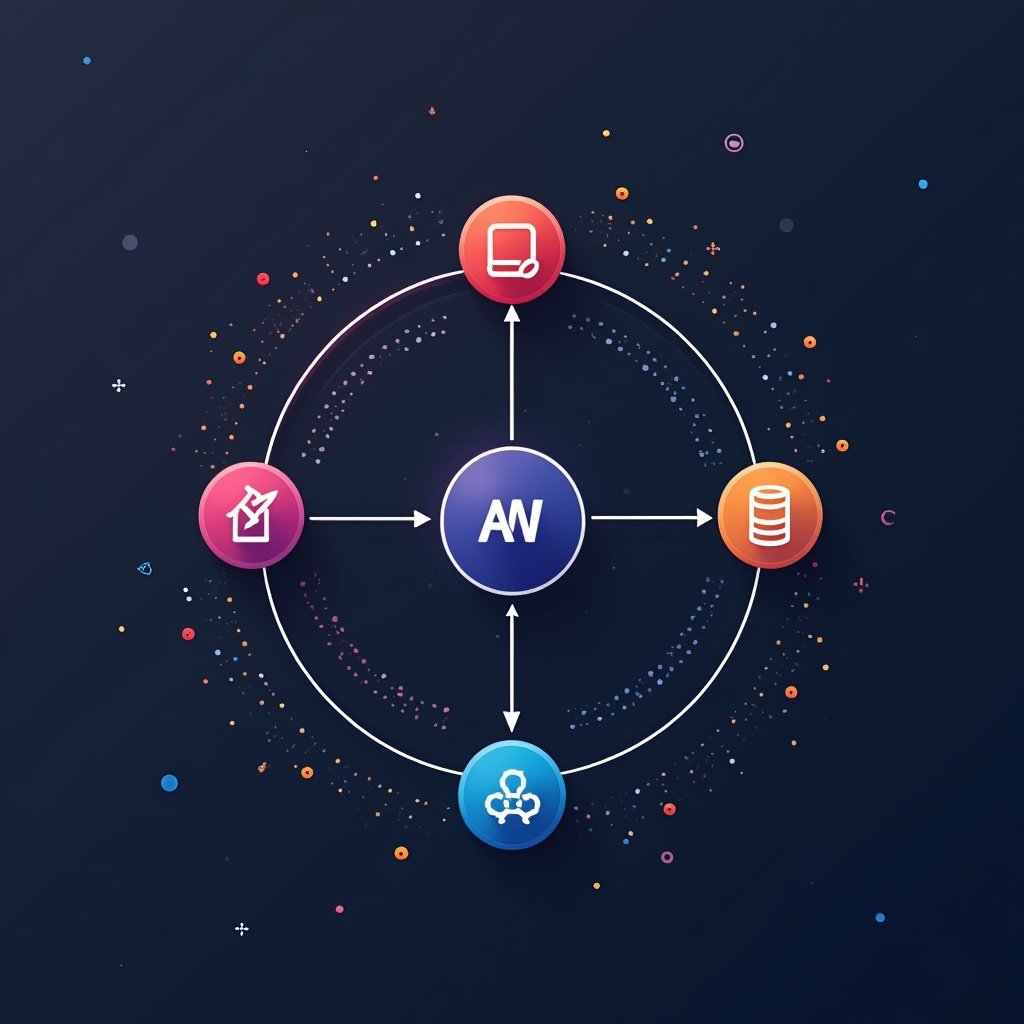The 5 best online Python compilers for testing automation are Replit, Jupyter Notebook (via Binder), Google Colab, PythonAnywhere, and Trinket. These platforms support automation libraries like Selenium, PyTest, and Robot Framework while offering API integrations for seamless workflow automation.
Why You Need a Reliable Online Python Compiler for Automation
Let me tell you a story. Last week, I was sitting in a coffee shop with my laptop teetering dangerously close to the edge of a tiny table, trying to debug an automation script while my battery slowly died. And then—poof!—my laptop crashed right as I was about to fix that stubborn bug in my Selenium test suite. If only I’d been using an online Python compiler instead of my local setup…
That’s the thing about automation testing—it happens at the most inconvenient times and places. Whether you’re quickly validating a script between meetings or collaborating with a team across different timezones, having access to a reliable online Python environment can be a total game-changer.
Let’s break down why these online compilers are becoming essential tools in teh automation engineer’s toolkit, and which ones deserve your attention in 2023.
Top 5 Online Python Compilers for Automation Testing
1. Replit: The All-In-One Automation Powerhouse
Replit has evolved from a simple online compiler into a comprehensive development environment that’s perfectly suited for automation work.
- Key Automation Features: Built-in support for pytest, Selenium WebDriver, and requests libraries
- Collaboration: Real-time collaboration that makes pair programming for test automation a breeze
- Storage: Persistent storage for your automation scripts and test data
- API Integration: Webhook support for triggering automation runs from external systems
What makes Replit stand out is its ability to handle complex automation dependencies without complicated setup. You can install packages with a simple pip command, and your environment persists between sessions—exactly what you need when developing complex test suites.
2. Jupyter Notebook via Binder: For Data-Driven Automation
When your automation testing involves data analysis or requires visualization of results, Jupyter Notebooks via Binder offers an elegant solution.
- Visualization: Perfect for creating visual reports of test results
- Integration: Seamless integration with data analysis libraries like pandas and numpy
- Shareable: Creates reproducible environments through GitHub repositories
- Interactive: Run code blocks individually—ideal for step-by-step automation debugging
I’ve personally used this combo for automation projects that required both test execution and sophisticated reporting. The ability to mix code, visualization, and documentation in one notebook is incredibly powerful for complex automation workflows.
Learn more in Best Workflow Management Software: 10 Top Solutions.
3. Google Colab: The Resource-Rich Option
When your automation tests need serious computing power (I’m looking at you, browser farm testing), Google Colab delivers:
- Free GPU/TPU: Access to powerful computing resources for resource-intensive automation
- Persistent Sessions: Long-running tests without timeout issues (within limits)
- Google Drive Integration: Easy access to test data and results storage
- Pre-installed Libraries: Many automation tools are available without additional setup
The biggest advantage here is running automation tests that would normally bog down your local machine. I’ve successfully executed parallel Selenium tests with multiple browsers in Colab that would have brought my laptop to its knees.
4. PythonAnywhere: For Scheduled Automation
If you need your automation tests to run on a schedule without manual intervention, PythonAnywhere delivers reliability and persistence:
- Task Scheduler: Set up recurring automation jobs
- Web Framework Support: Ideal if your tests need to interact with web applications
- Always-On Execution: Tests continue running even when you’re not logged in
- MySQL Database: Store test results directly in a database
What’s particularly valuable about PythonAnywhere for automation engineers is the ability to schedule tasks and forget about them. Set up your test suite to run every night and wake up to a fresh report—automation at its finest!
5. Trinket: Simplified Automation for Beginners
If you’re just getting started with automation testing or need something super lightweight, Trinket offers a simplified approach:
- Embeddable: Automation demos can be embedded directly in documentation
- Lightweight: Fast loading and execution for simple scripts
- No Account Required: Quick access for simple test validation
- Turtle Module: Useful for visual testing concepts and demos
While it lacks some advanced features, Trinket shines for educational purposes or quick validation of automation concepts. I’ve used it during workshops to teach automation fundamentals without getting bogged down in setup.
Key Features to Look for in an Online Python Compiler for Automation
Not all online Python environments are created equal, especially when it comes to automation testing. Here’s what separates the good from the great:
Library Support
The backbone of any automation tool is its ability to work with specialized libraries:
- Selenium WebDriver: Essential for browser automation
- Requests/BeautifulSoup: For API testing and web scraping
- PyTest/Robot Framework: For structured test development
- Pandas/NumPy: For data-driven test automation
The best online compilers allow you to install and use these libraries without friction. Some even come with these pre-installed, saving you valuable setup time.
Execution Environment Persistence
There’s nothing more frustrating than losing your carefully configured automation environment. Look for:
- Session persistence between browser refreshes
- Ability to save environment configurations
- Package installation that persists across sessions
- File storage for test data and results
Integration Capabilities
Modern automation rarely exists in isolation. Your online Python compiler should play well with:
- Version control systems (Git/GitHub)
- CI/CD pipelines
- External APIs and webhooks
- Cloud storage for test artifacts
The ability to trigger tests through an API or webhook can transform your automation from a manual process into a fully integrated part of your development workflow.
Common Myths About Online Python Compilers for Automation
Myth #1: “They’re Not Powerful Enough for Serious Automation”
This might have been true five years ago, but today’s online Python environments are surprisingly capable. With Google Colab offering GPU support and PythonAnywhere providing dedicated processing, many online options actually outperform local setups for resource-intensive automation tasks.
Myth #2: “Security Concerns Make Them Unsuitable for Enterprise Testing”
While security is always a consideration, many online compilers now offer enterprise-grade security features. Private repositories, secure environment variables, and encrypted storage have made these platforms suitable even for sensitive automation projects.
Myth #3: “They Don’t Support Complex Automation Frameworks”
I’ve personally implemented Robot Framework, Behave, and PyTest in online environments without issues. Most platforms now support virtually any Python package, making complex framework implementation entirely feasible.
Real-World Applications: How Companies Use Online Python Compilers
Case Study: E-commerce Testing Pipeline
A mid-sized e-commerce company implemented a Replit-based solution for their daily inventory sync validation. Their automation team created a suite of tests that:
- Validates product data consistency across platforms
- Checks price synchronization between their database and website
- Monitors shipping calculation accuracy
- Generates daily reports accessible to non-technical stakeholders
By moving this to an online environment, they eliminated the “it works on my machine” problem and ensured consistent test execution regardless of who ran the tests.
Case Study: Distributed QA Team Collaboration
A software company with QA engineers spread across three continents faced challenges with environment consistency. Their solution was a Google Colab notebook that:
- Maintained a single source of truth for test scripts
- Allowed simultaneous collaboration on test development
- Provided consistent execution environment regardless of local setup
- Generated shareable test reports with visualizations
This approach reduced environment-related test failures by 64% and improved cross-team collaboration on automation development.
Learn more in Best Workflow Management Software: 10 Top Solutions.
Getting Started with Online Python Automation: A Quick Guide
Ready to dive in? Here’s a simple process to get your automation up and running in an online Python compiler:
- Select the right platform based on your specific automation needs (refer to our top 5 list)
- Create a basic test script to validate your environment setup
- Install necessary packages (most online compilers use standard pip commands)
- Configure persistence options to ensure your environment stays intact
- Set up version control integration for collaborative development
Pro tip: Start with a simple “smoke test” automation script to verify that everything works before building out your full test suite. Something as basic as a script that visits a website and verifies a specific element is present can confirm that your automation environment is correctly configured.
What’s Next in Online Python Automation?
The landscape of online Python compilers for automation is rapidly evolving. Here are some trends to watch:
- AI-assisted test generation is being integrated into online coding platforms
- Container-based execution environments are providing even more consistency
- Low-code interfaces are making automation more accessible to non-programmers
- Enhanced visualization tools are improving test result interpretation
As these technologies mature, we can expect online Python environments to become even more powerful tools for automation engineers, potentially replacing traditional local development setups entirely for many testing workflows.
Whether you’re just starting your automation journey or looking to optimize an existing testing process, these online Python compilers offer compelling advantages that are worth exploring. Your perfect automation workflow might be just a browser tab away!






